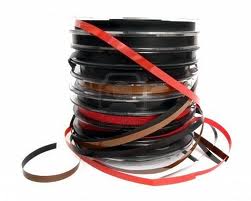This week, 2nd to 9th July 2017 is National NAIDOC Week. The theme this year is “Our Languages Matter”. Around Australia, there will be national celebrations of the importance, resilience and richness of Aboriginal and Torres Strait Islander languages.
On the Dieri Yawarra blog this week we present a traditional story in the Dieri language — this is the only traditional story that was able to be recorded in the 1970s from the language teachers who grew up in Dieri country. All other Dieri stories have been lost because of the impact of Christian missionaries from the 1860s onwards.
Here is Part Five and the end of the story (click to see Part One, Part Two, Part Three and Part Four). First we give the words in Dieri and then a translation into English. If you want to study the structure of each sentence in this part of the story you can download a PDF that gives the word-by-word translation and grammatical structure.
Dieri Story — Part Five
Mayi, yini matyamatha yini?
Kawu, matya nganhi.
Ngurrungurrulha.
Wardayari yundru nhayirna warayi?
Nhungkanguwa ngathu nhayinhayiyi, thurru yarkiyarkitharrirnanhi.
Ngayana wapayi nhungkangu.
Warrangantyunhi ngathu nhaka nhinha nhayinhayiyi, thurrutha yarkirnanhi.
Ngardanhi thana wapayi, dityi parlpa thuraralha.
Nhingkiyamatha ngathu nhayiyatha.
Pani nhawuya.
Pakurnatha nhinha mitha.
Warulha nhawuya.
Thurararna, yirtyilha.
Ngardanhi, mitha thurruthurruku nhawuya.
Dityi kurnulha nhawuya kanya thurruthurru.
Waparna again, thurararna parlkarna.
Matyaku nhawuya.
Thurruthurru ngalyi kanya thurruthurru.
Thinali waparna again.
Matyaku nhawuya.
Thurruthurru marla.
Pirla nhawuya matya marramarratharriyilhaku.
Matyatha yarkiyilhaku nhawu thurru.
Matya thana waparna.
Nhawuyaku nguratha.
Nhawuyaku nguratha warrithandru nhayingarna.
Waparnarlu, nguraya waparnarlu, thurru manirnanhi kakuyali kardiyali, ngura kurralha, thuraralha.
Matya thana wakararna parlkayi nguranhi, kardiyalitha thurrutha ngankarnanhi, katulha ngankarnanhi.
Mayi, minhanhi wakarayi.
Warararnakuyi yula nhinhaya kanku, marlarlu yula pardakarna nhinha, yula warararna.
Minhandrulha?
Nhaka pulanha nandrayi then, nhiyi mandruyali kakutha ngathatatha nandrarna nhaka ngathatatha karditha.
Nharingankarna kurrayi.
Matya murdayi.
English Translation
“Well, are you alright?” (the older brothers asked the younger brother)
“Yes, I am alright.” (the younger brother replied)
“(I’m) strong now.”
“Where did you see (them)?” (they asked him)
“Over that way I saw the fire burning.”
“Let’s go over there.”
“On the left there I saw the fire burning.” (said the younger brother)
Then they went (along) and slept for some days.
“It’s here that I saw them.” (said the younger brother)
“There is nothing here.” (they said)
(They) dug the ground (where the fire had been).
“This (campsite) is old.”
(They) slept and got up.
Then, “This is hot ground” (they said)
“These hot ashes are one day old.”
(They) went on again, sleeping as they went along.
“This is it here!”
“These hot ashes are a little hotter.”
(They) went on foot again.
“This is it here!” (they shouted)
“It’s very hot.”
“These coals are glowing alright.”
“This fire has just been burning.”
So they went on.
“This is the camp!”
“(I) saw this camp from far away.” (said the younger brother)
(They) kept going, going to the camp where the sister and brother-in-law were getting wood to make a camp to sleep.
So they came to the camp as the brother-in-law was making a fire (and) making a windbreak.
“Well, why have (you) come?” (he asked them)
“You left this boy, bringing him along (and) leaving him.” (said the older brothers)
“Why?” (they asked)
Then (they) hit them two there, the two elder brothers hit the sister and the young one, young brother-in-law.
(They) killed (both of them).
That’s the finish.




